Unique Lodgings in Italy for Workation
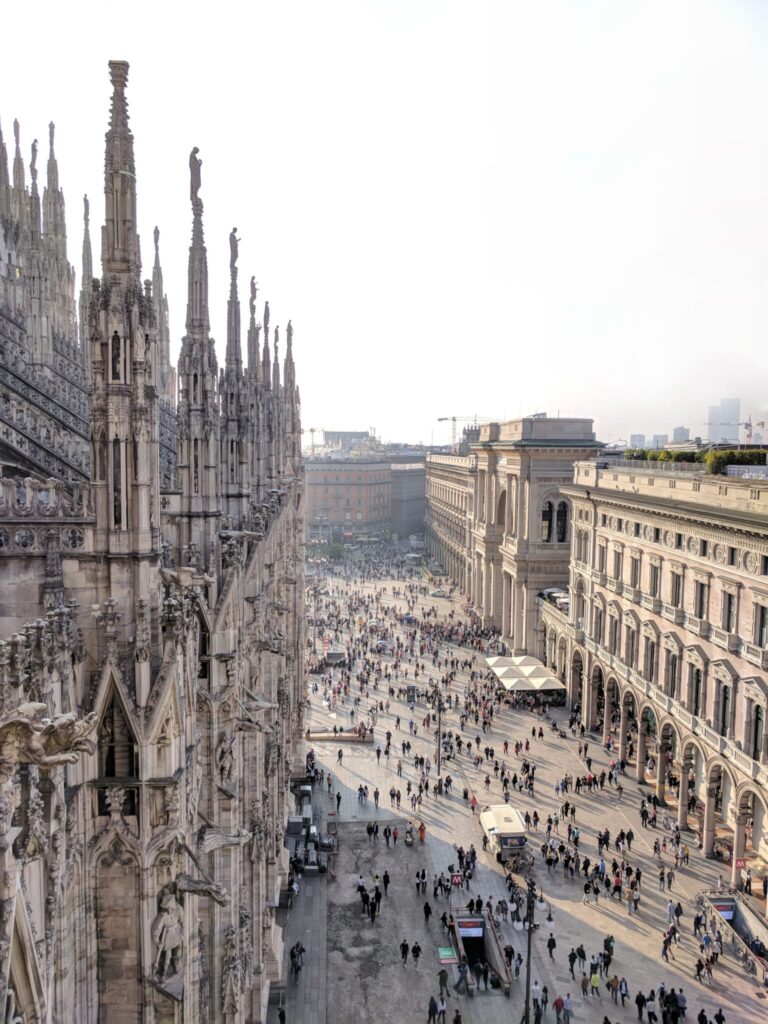
Boutique and eco-lodges have become popular in Italy and an Italy Workation could give you the opportunity to enjoy work and life in luxurious villas, elegant castles, and even quiet monasteries. The travel industry has moved toward quality, distinctiveness, and fashion to make your accommodations in Italy part of the travel experience.
Larger hotel chains and smaller boutique hotels have created a movement capturing leisure and Italian culture tucked in behind hidden bakeries and along private palaces. The ways in which grand hotels now design in connection to their locations is a symbol of the effort’s strength, which demands unique style inspired by tradition, history, and heritage from the local furnishings to particular colors associated with former aristocracy.
It is easy to imagine four- and five-star quality lodges decorating the landscape of Italy, both in the cities and across the rural expanse. From mountain lodges in the Alps to seaside resorts overlooking the Adriatic or the Mediterranean, you are unlikely to find an ironing board in your room and you will most likely open the door with an actual key as opposed to an electronic swipe card. Windows may look out to the bustling life of the city, provide the soundtrack of daily life, and add to the historic charms of an accommodation and its setting along cobblestone streets, olive groves, hills or vineyards with our list of the most unique lodgings in Italy you may find during a Workation.
Trulli Hotels
A trullo is a unique architectural design in the Puglia region. A trullo on the outskirts of the town of Alberobello can surround you with clay, olive, and prickly pear, providing an eco-friendly luxury experience with a heated pool, hot tub, and cycling paths crisscrossing the landscape.
The whitewashed walls and conical roofs resemble a fairytale dwelling. The distinctive shape helped locals of the southern region keep their homes cool in against the summer heat and warm in the dry winters.
A number of the antique homes have been modernized over the years and turned into vacation apartments or boutique hotels. The rooms offer a private bath and a stunning experience found only in Puglia and Southern Italy.
Sassi Hotels
The sassi zone of Matera refers to the cave dwellings in the region located in Southern Italy. A hotel in the sassi zone will give you access to the oldest area of the cave dwellings in the city and features a composition of traditional design made with local materials, along with minimalist contemporary touches.
Locals dug homes and churches out of the soft tufa stone and utilized the subterranean dwellings for centuries until as recently as the 1960s. A number of the cave-homes have been refurbished and modernized with designer touches and contemporary luxuries. The wild ambiance touches on the history of the city and the Basilicata region, while providing guests an unforgettable chance to reinterpret their ideas of authentic Italian tradition.
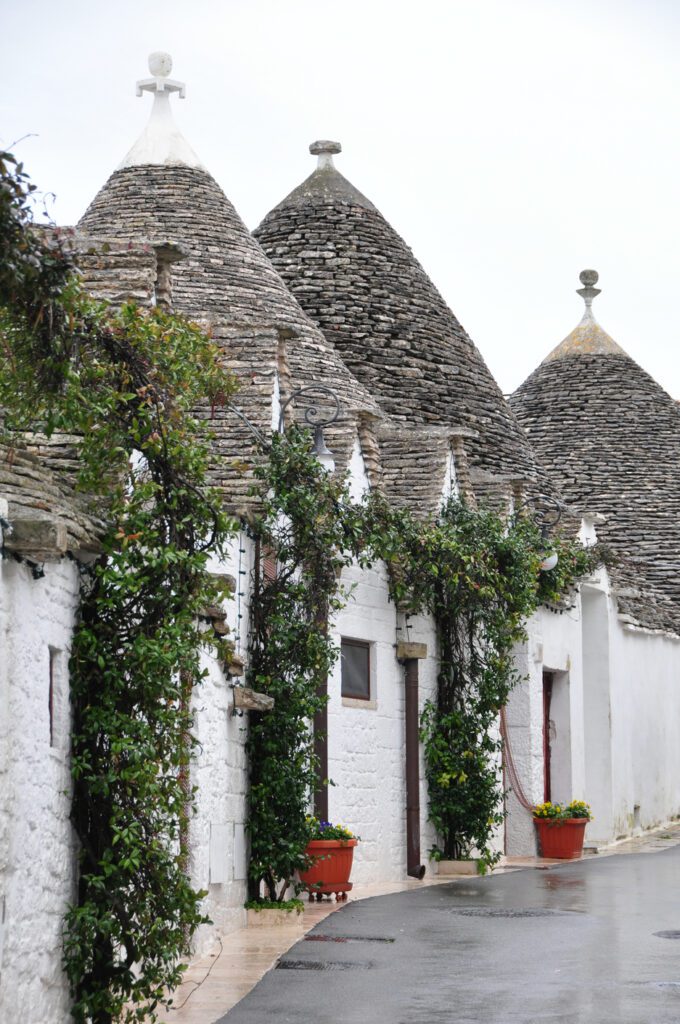
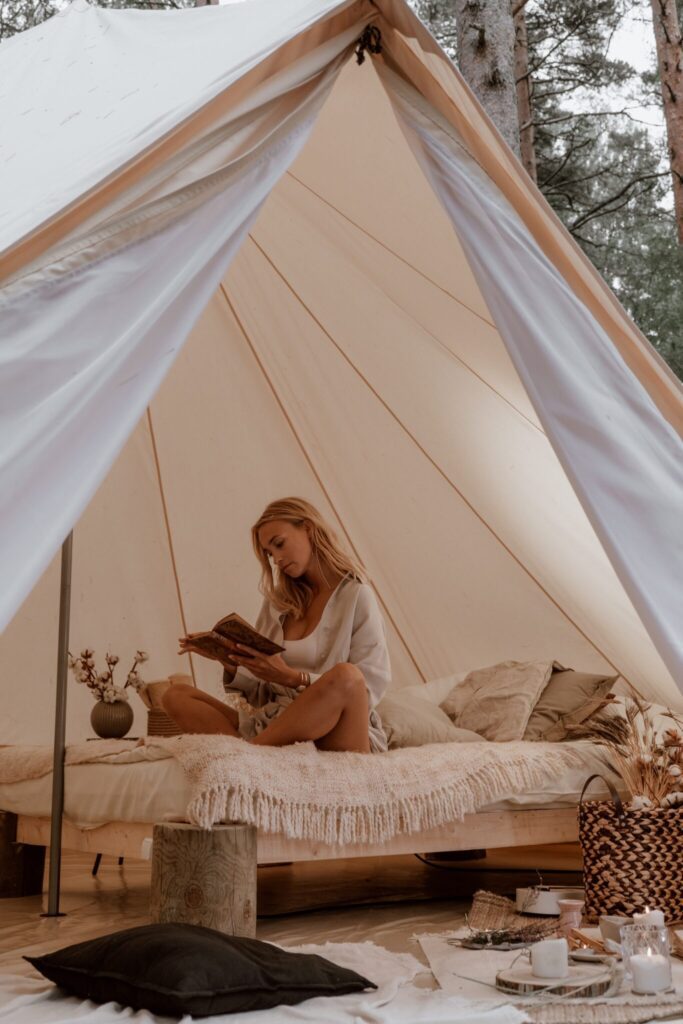
Treehouse Glamping
Italy is drawing visitors from around the world with new and different perspectives on the unique contours of the country’s topography, with tourists finding more than just the art and architecture of the big cities.
A treehouse glamping experience can showcase tens suspended from the trees at more than 20 feet above the forest floor, allowing couples, families, and individuals to feel as though they are nesting with the birds. The grounds can provide local food, a collection of nature trails, and captivating adventures for family fun activities.
Ultimate Luxury Hotels
Italy’s star-rating system ranges between 1 and 5 stars, with an extra emphasis on luxury hotels rated as 5-star deluxe. The ultimate in glamor, comfort, and extravagance can appear in the form of a hotel that classifies itself as a “7-star” establishment.
High-end services are tailored to satisfy each guest and include amenities such as personal butlers versed in the guest’s native language, a wellness area, concierge services, and private limousine transfers. This type of hotel can also host exceptional galleries amidst the grandeur of Italy’s premier shopping districts.
Eco-Friendly Resorts
Erase whatever image you have when thinking of the word “resort,” because one of the truly unique establishments in Italian accommodations is the idea of restoring and transforming abandoned villages into something new, exciting, and welcoming to visitors from across Italy, Europe, and the world.
Goats, sheep, horses, and cows can graze on grasses allowing guests to experience farm life and organic produce grown on a property. Guests of a yurt can explore the scenery, lounge on the secluded beaches, or partake in the daily activities of the farm to learn more about the agricultural history of the region.
These types of establishments have an eco-friendly focus often powered by renewable resources and low-energy light bulbs. Wide windows and marvelous vistas offer views offer the icing on the cake with few visitors outside of Europe knowing about these types of accommodations, providing a perfect escape into nature or an extravagant romance in view of the mountains.
Chocolate Dreams
Chocolate is more than candy in the region of Umbria and its capital Perugia, but is a sweet obsession, embodied in the nearly 100-room Etruscan Chocohotel, which is dedicated to the popular confection.
The restaurant carries a chocolate-themed menu and three floors of the hotel are dedicated to different types of sweets with Milk Chocolate, Gianduja—a popular sweet spread with chocolate and hazelnut, and Dark Chocolate floors. The Etruscan motif emanates from the heritage frescoes decorating the rooms of a particular floor, combining the ancient history of the Umbria region with the contemporary culture of Perugia through its chocolate delights.
There is also a panoramic terrace offering views of the Umbrian plains and hills leading to Assisi, with a swimming pool filled with crisp, cool water, as opposed to thick, creamy chocolate.
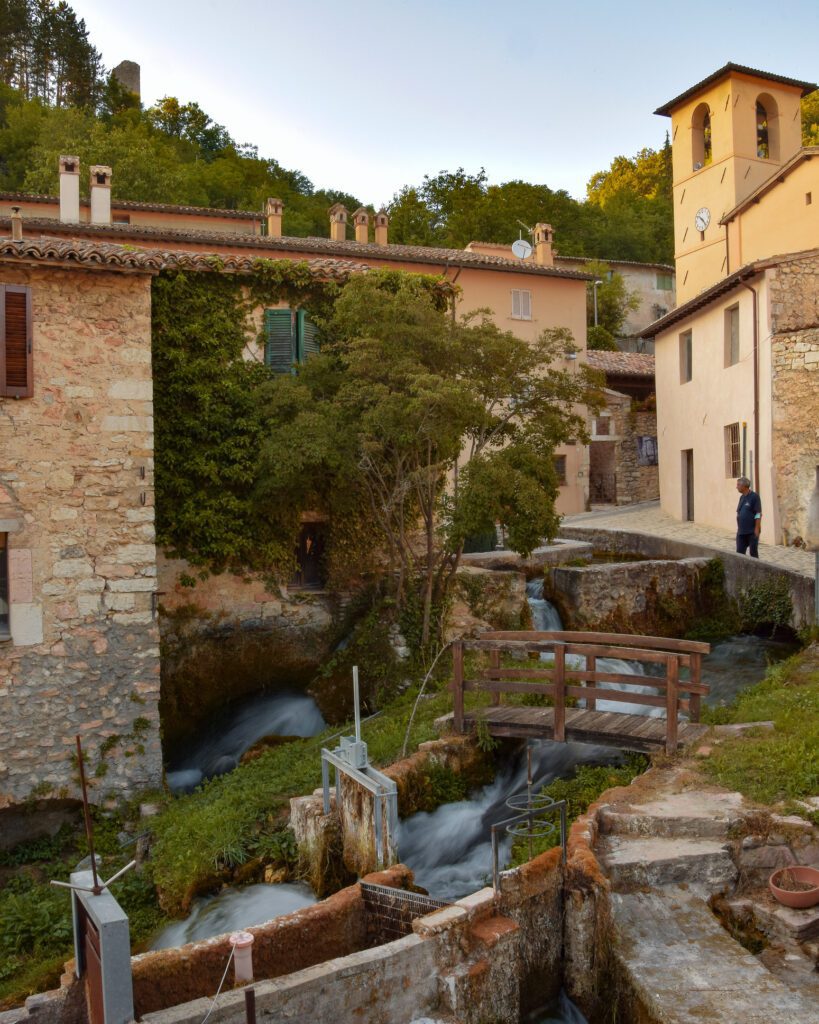
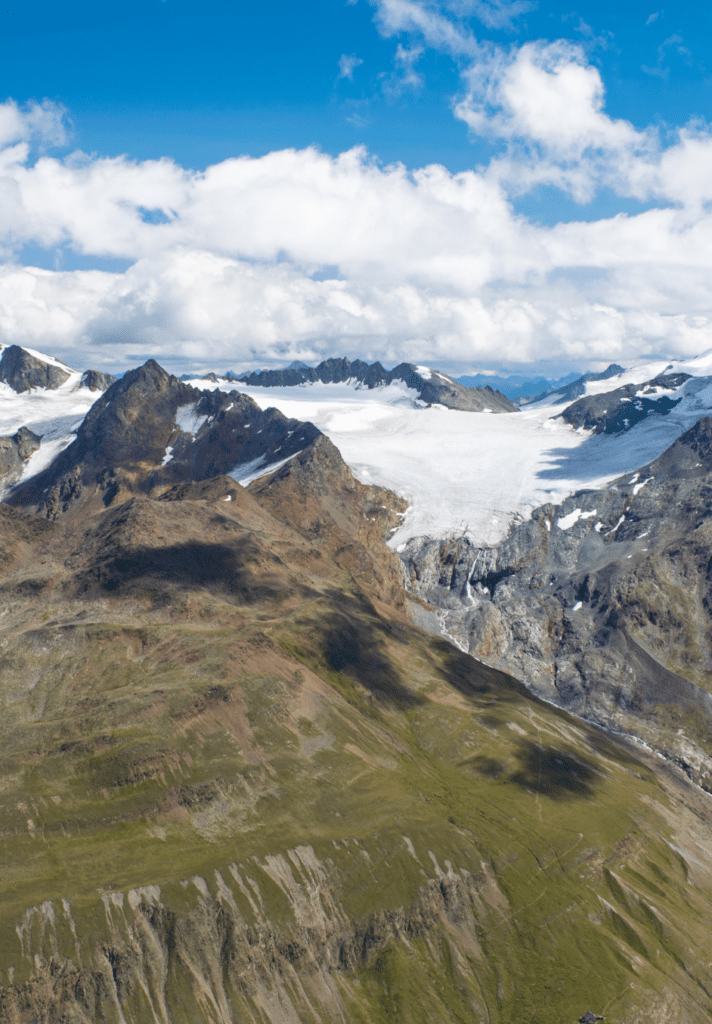
Mountain Paradise
Mountain paradises provide luxurious eco-friendly experiences including inside an igloo at over 9,300 feet above sea level in the South Tyrol region of Italy, also known as Alto Adige, an autonomous, German-speaking province in the Alps separating Italy from Austria.
Sustainable lodging is only offered in winter with three authentic accommodations that can be carved from snow and ice. 100 percent of the electricity derives from renewable sources and the accommodation offers the luxury of soaking in the highest outdoor sauna in Europe with panoramic views of the Otztal Alps.
Fans of winter sports have optimal options with skiing, snowboarding, or glacial hikes in the winter. In the summer, although the igloos are not available, the landscape provides exceptional scenic hiking and boating on the glacial lake.
Quiet Charm
A quaint bed and breakfast is known for its unique rooms located inside remodeled traditional features like wooden barrels or historic inns. The eco-friendly establishment is situated on family-owned farmland, which grows its own organic food used in the meals prepared for guests.
The windows overlook the terrace for views of the enchanting landscape of a region known for rugged mountains, lush forests, and stretches of glistening beach with tranquil atmosphere positioned with views of the hills or an active fishing port on the coast.
Hidden Towers
Accommodations in Italy can fill centuries old towers in a historic city where over 100 towers once created the lavish skyline, and served as fortresses for the noble families who funded their assembly.
A tower hotel will be fully restored with many, if not all, stories open to visitors, with a single room adorning the top floor. The towers often stand nearly 200 feet tall and provide a breathtaking view of the surrounding city or scenery. A stairwell will often wrap around the walls leading upwards for a dizzying climb, reflecting the impregnable stronghold built to protect and defend the noble family in the Middle Ages.
Traditional Napoleon III
Rome is known for boasting lavish accommodations and elegant palaces dating back to the times of emperors and Roman legions but the Roman palazzo Residenza Napoleone III captures the imagination of guests with remarkable 16th-century luxury. The boutique hotel known as Palazzo Ruspoli has hosted many distinguished guests since its creation in the mid-1700s and served as the home of Napoleon III in the 1830s.
Only three of the palace’s rooms are open to visitors with the most coveted being the Napoleon Suite. Guests immediately feel the wealth of the former nobility upon entering the grounds decorated with massive wooden doors and a stunning marble staircase. The Napoleon Suite is decorated with antique furnishings, giant oil paintings, parquet floors, hand-stenciled walls, and original tapestries. There is also an exquisite marble bathroom that feels like a palace in its own right.
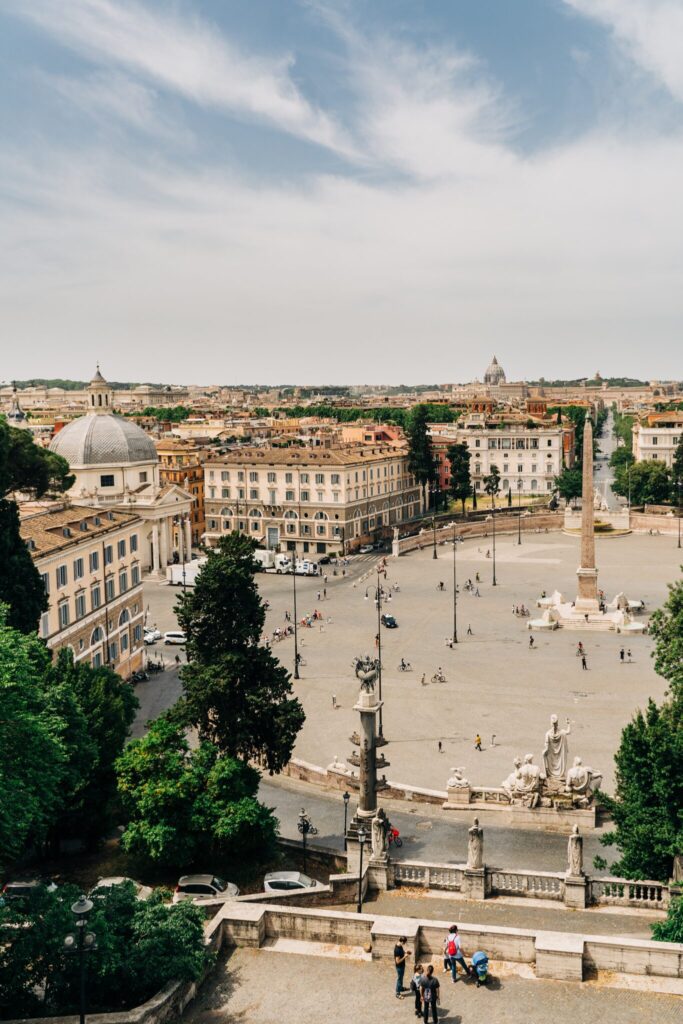
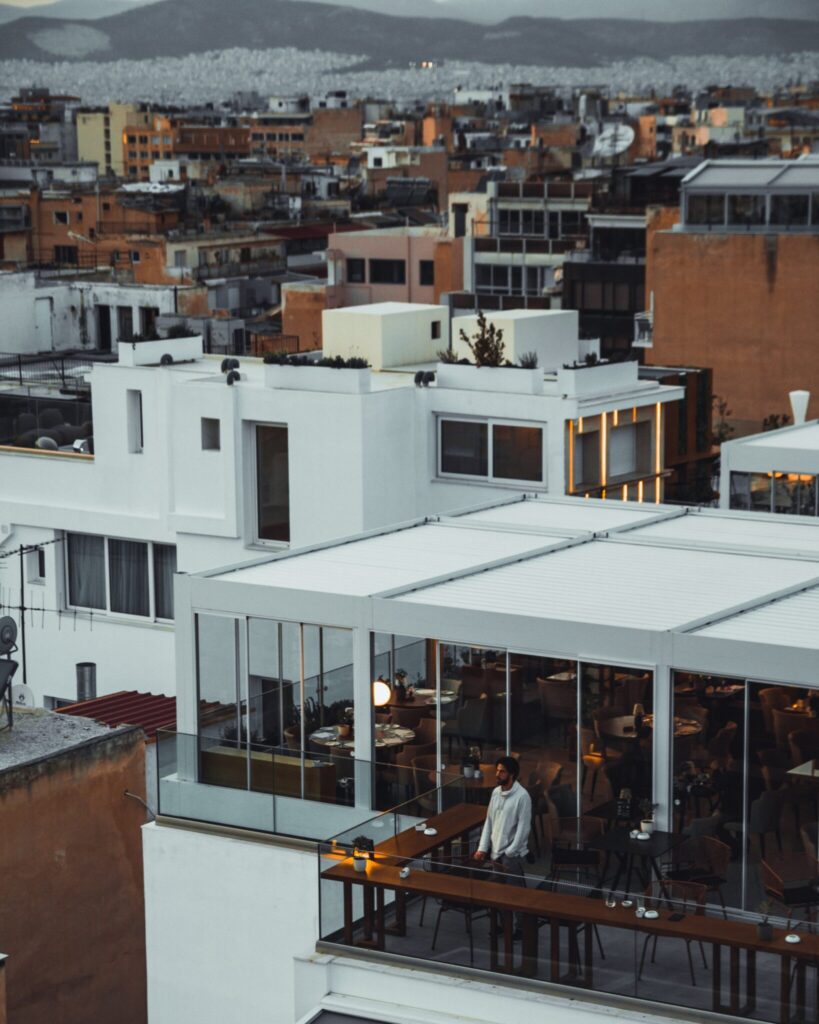
Types of Accommodations in Italy
Hostels
The common travel accommodation is a great way to save money across Europe and the world. The Italian name for a Hostel is ostello. They often have dorm-style rooms, along with rooms for couples or individuals. These rooms often still share a common bathroom with the other rooms on a given floor.
A hostel can also call itself a hotel in Italy. Just because a lodging has the word hotel does not mean it will be the fanciest or most luxurious establishment. Hostels do remain popular among international travelers on gap years, university students, and those looking for cheaper accommodation options during their travels through Europe.
Agriturismo
“Agriturismo” is a type of vacation where you stay on a working farm in Italy. There are options for all budgets, including the chance to work on the farm to reduce the cost of your stay. You can also enjoy the natural beauty of the countryside through activities like hiking, cycling, or cooking classes to learn about the culture and traditions of Italian farmers.
Alternatively, Agriturismo also offers opportunities to stay on an olive estate or vineyard, with some properties offering lavish grounds for guests to enjoy away from the hustle and bustle of the city, that may include opportunities for wine tasting, olive oil tasting, or cooking classes to fully enjoy your surroundings.
Bed and Breakfast
The term Bed and Breakfast has become more popular in recent years in Italy’s hotel industry. While the words conjure a warm image of countryside cottages or seaside bungalows, Bed and Breakfasts in Italy do not always fit the same criteria. Many of these types of accommodations serve traditional Italian breakfast in the morning, which consists of espresso and a pastry.
The accommodations themselves are great quality, with fresh flowers decorating the room and a cocktail welcoming guests upon their arrival but the breakfast can often leave Westerners eager for a hardier start to the day. In Italy, a Bed and Breakfast could be viewed as a guest room located in a private home, as well as inside a working villa or an apartment.
Convents and Monasteries
The religious grounds have long histories of serving as hostels for traveling pilgrims or knights searching for a bed for the evening. The tradition continues in many monasteries and convents across the Christian world, especially in Italy, with the historic edifices offering inexpensive options for tourists or glamorous stays on refurbished grounds now housing elegant accommodations.
Staying at a working monastery or convent can shape your experience by exposing you to the same type of rules and regulations to which monks and nuns are subjected. The doors to the grounds are locked at a certain hour, instating a curfew.
Separate sleeping quarters are imposed on men and women regardless of their marital status. The grounds are safe, quiet, and offer a distinctive understanding of monastic life that has remained unchanged for centuries.

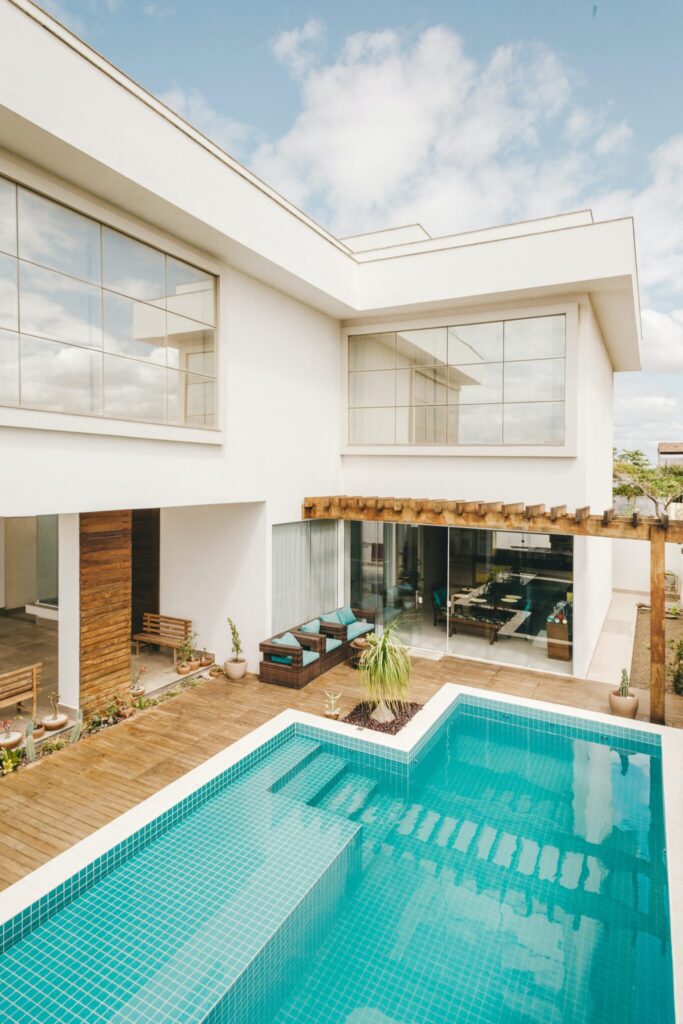
Hotel and Albergo
The words are synonymous in Italy, with some accommodations using one, the other, or both when advertising to visitors. The star system in Italy can vary more wildly than what you may be accustomed to while traveling.
The star rating system in hotels is not as standardized as it is in other countries, and a lower rating might be due to the lack of amenities that are common in Western countries, like elevators or an American breakfast. The amenities a hotel in Italy offers can vary not only based on its star rating, but also its location. Things like elevators, air conditioning, and gyms may depend on the age of the building, with more luxurious options being more common in bigger cities. Hotels in the countryside may have swimming pools because they have more space.
Villas and Palaces
There are different ways to appreciate the villas and palaces of Italy. Many former mansions or estates have been refurbished for private use. Some villas have unique rental opportunities, similar to renting a vacation home, others are used as hotels.
The most common place using former palaces as hotels in Venice, where images of the Republic decorate the elegant halls and grand lobbies, leading to enchanting rooms above the canals. Tuscany is popular for renting private villas and a way to make day trips to the surrounding countryside and villages.
Castles
Staying in a castle is also considered a hotel but offers a unique perspective on the ways in which Italy has transformed its history for contemporary use while sharing its past. The types of castles range from 14th-century storybook designs at the heart of a small village to millennia-old fortresses in view of olive orchards.
The architectural style and age of the castles depend on the region in which they are located, providing fabulous insight into the different families that shaped the various regions of Italy, promoting the local cultures connected more to the former city-states than to the country as a whole.
Camping
What was once considered a rustic alternative to hostels or luxury hotels has become a luxurious extension. The word “glamping” embodies the beauty of the countryside, the quiet of rural life, and the luxury of a five-star hotel. A variety of campsites around Italy provide shuttles to the nearest city throughout the day for visitors to tour monuments and culture while still enjoying nature in comfort.
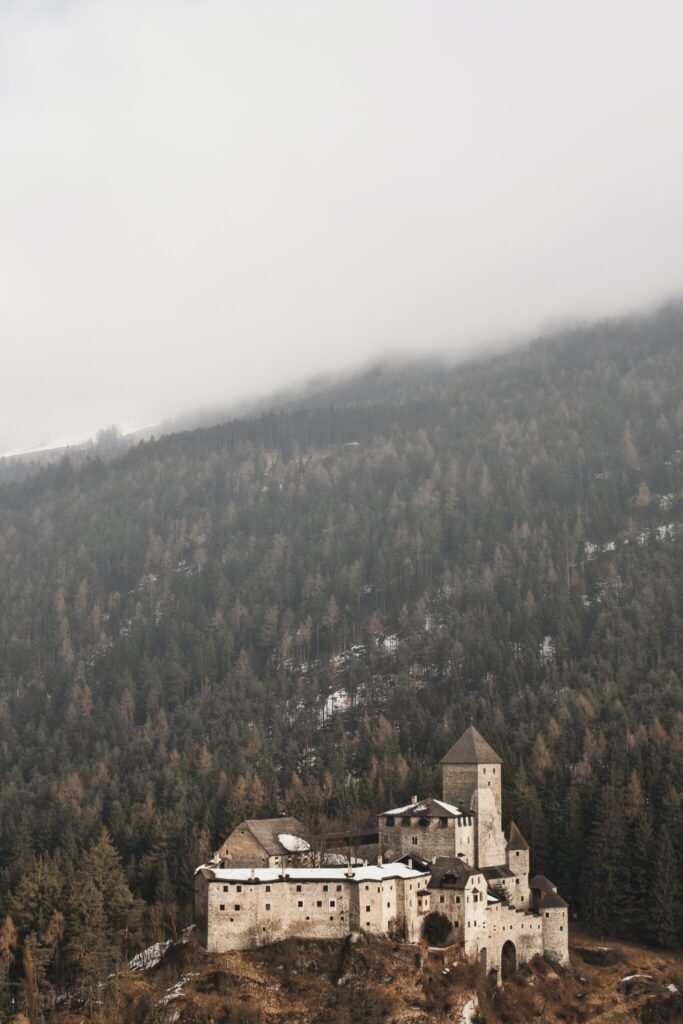

Enjoy Unique Accommodations for Your Italy Workation
It is easy to imagine four- and five-star quality lodges decorating the landscape of Italy, both in the cities and across the rural scenery. Mountain lodges in the Alps, seaside resorts overlooking the Adriatic or the Mediterranean, Renaissance palaces in the heart of a city, your accommodations in Italy can add to the allure and luster of one of the most visited countries in the world.
The country’s treasures go beyond famous monuments with perfectly preserved mountains, reflective waters, grand architecture, enrapturing history, and unique experiences from which you can view it all. During your Italy Workation package, we can help maximize your productivity and enhance your connection to the experience by combining our understanding of local life and culture with the activities you want to have. Take one step closer to planning your Workation or find more information with The Festivals People Celebrate in Italy.

